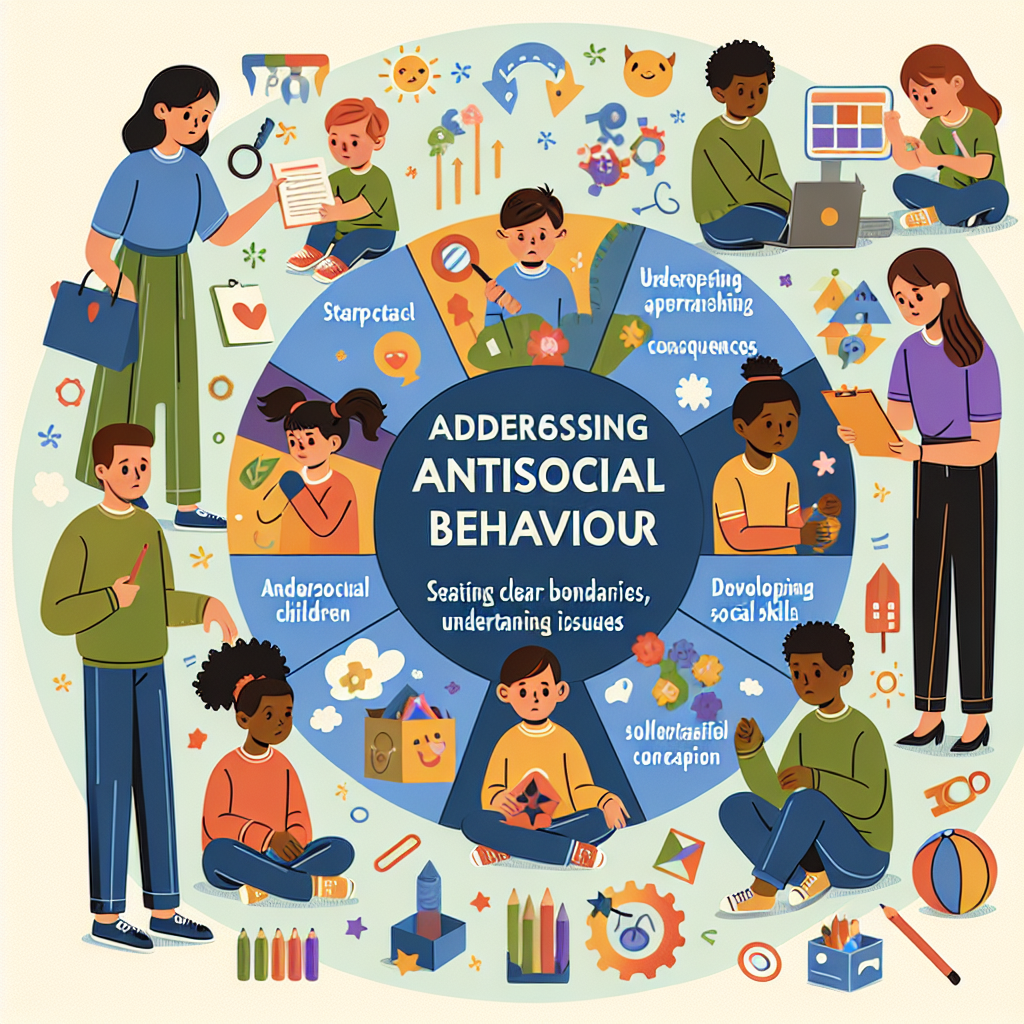Addressing Antisocial Behavior in Children: How to Help Them Overcome Problems
Addressing Antisocial Behavior in Children
Antisocial behavior in children is often viewed with concern by parents and educators. It is important to understand that this phase of development can be a normal challenge in growing up, but it is essential to approach it tactfully and provide the necessary support to ensure healthy child development. Through this guide, we'll explore different aspects of antisocial behaviour, including the reasons why and how adults can intervene to help children navigate these tricky stages.
Motor Development and Antisocial Behavior
A child's motor development can directly influence his behavior. Children who have difficulty coordinating movements or performing physical activities may become frustrated or agitated, which may lead to isolation or refusal to interact with other children. On the other hand, children who are extremely physically active may tend to be impulsive, which can result in antisocial behaviors.
It is important to monitor children's progress in terms of motor development and intervene when necessary. Regular physical activity, sports, and games that encourage movement, cooperation, and following rules can be a great way to balance impulsivity and teach children how to interact positively with those around them.
Language development
Effective communication is essential to positive social relationships. Children who have language difficulties may feel frustrated or angry because they cannot express what they are feeling or thinking, which can lead to antisocial behaviour. Encouraging language development from an early stage through regular reading, conversation and educational games can help prevent this type of behaviour.
Identifying language delays early and working with a speech therapist to address these challenges can have a significant impact on a child's ability to interact with others and develop healthy social relationships.
Other Key Developmental Stages and the Link to Antisocial Behavior
In addition to motor and language development, there are other key stages in child development that can influence antisocial behavior. Recognizing emotions, developing empathy and learning social norms are all crucial. Children who fail to develop these skills may have difficulty establishing and maintaining positive relationships with those around them.
Parents and educators should be mindful of these issues and create environments where children are encouraged to explore and learn about emotions, empathy and social behavior. Role plays, interactive readings, and group activities are valuable tools for developing these essential skills.
Early Intervention and Prevention
Early intervention is crucial in addressing antisocial behavior in children. Careful observation and evaluation of behaviors that may indicate potential problems is vital. By establishing a quick action plan, which may include behavioral therapy, counseling, or social programs, parents can make a significant contribution to improving their child's behavior.
The role of prevention by creating a stable family environment, full of love and acceptance, in which children feel valued and understood, should not be neglected. Positive discipline, setting clear and consistent boundaries, and modeling appropriate behavior are all practices that can help prevent behavior problems.
Conclusion
Addressing antisocial behavior in children is a complex but essential task to ensure their well-being and that of society as a whole. By understanding the factors that contribute to the development of these behaviors and by implementing educated intervention and prevention strategies, parents and educators can bring about significant positive changes in children's lives.
It is important to remember that each child is unique and may require different approaches. Through patience, constant support and open communication, we can guide our children through a healthy and successful growth process.
Continue to educate yourself and seek out resources to support your child, whether it's books, articles, seminars, or support groups. Informed parents are the best allies in the fight against antisocial behavior and in building a solid foundation for their children's future.














































































































































